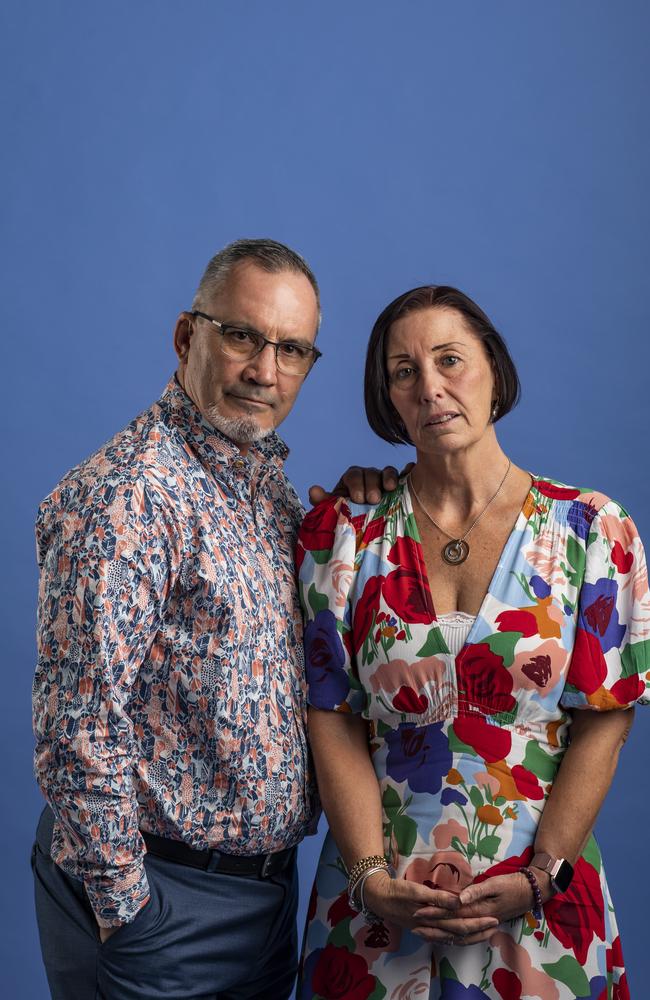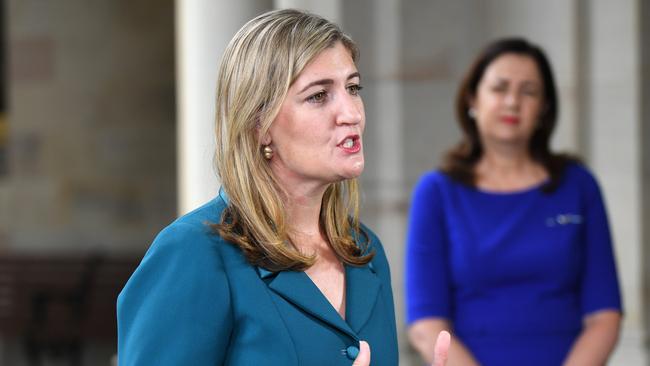Families unite to stop violence
Survivors and the families and advocates of victims have teamed up to demand five key changes they say could help bring an end to the senseless cycle of domestic violence tragedy.
QLD News
Don't miss out on the headlines from QLD News. Followed categories will be added to My News.
THE brave families of some of the hundreds of Queenslanders horrifically killed in domestic violence murders have united with survivors and campaigners to demand five key changes they say could help bring an end to the senseless cycle of tragedy.
On the eve of the anniversary of the deaths of Hannah Clarke and her children, The Courier-Mail can reveal the crucial steps Queensland can take to save lives – in the words of those who have experienced the devastating scourge first hand.

GPS trackers for serial offenders, the disclosure of a person’s DV history to victims, scrapping the use of provocation as a defence, increased DV education for schoolchildren and coercive control legislation are the key initiatives that could make Queensland a safer place.
The Courier-Mail will profile each of the measures over the coming days and highlight why DV victims’ families, survivors and campaigners believe they are the right steps to take – and the time is now.
Yesterday, the State Government announced former Court of Appeal judge Margaret McMurdo will head a taskforce to consult with stakeholders about outlawing coercive control, which includes controlling what someone wears, who they see and limiting access to money.
“I know there are many women out there currently in these types of situations and it’s not good enough,” Premier Annastacia Palaszczuk said.
“Today, we draw a line in the sand.”
The move was yesterday welcomed by the family of Hannah and her three children Aaliyah, 6, Laianah, 4, and Trey, 3.

Hannah’s mother Sue said the coercive control her daughter suffered at the hands of her ex-husband Rowan Baxter was gradual but became quite extreme.
She said Baxter would call Hannah constantly, demanding to know where she was and what she was doing. He disapproved of her dressing up and convinced her to delete her Facebook account - setting up a joint profile he used to monitor her communication.
“It’s just very gradual,” Mrs Clarke said.
“They just control them more and more. And then by the time they start to realise it’s dangerous, they’re caught. They’re too scared to leave. They have nowhere to go, or they don’t have the money. Or they’re convinced it’s bad for the children to not have their father around.”
Mrs Clarke said while she did not believe anything had changed in the year since her daughter and grandchildren were murdered, she was hopeful it was going to and said the government’s taskforce announcement was “great news”.
Between July 2006 and June last there were 350 domestic and family homicides in Queensland, including 85 children, equating to more than two DV murders each month.
The Clarke family are among the dozens of campaigners, survivors and loved ones of violence victims who have this week joined forces to talk about the scourge of domestic violence and the crucial actions needed to help stamp it out.
Advocates say while the push for coercive control legislation is a step in the right direction, they want to see the momentum continue with other initiatives including GPS trackers for repeat offenders and the introduction of a system that would allow victims to learn if their partner had a history of violence.

Natalie Hinton, whose daughter Tara Brown was killed in a horrific attack by her partner in 2015 said she believed the disclosure of an offender’s violent past could help save lives.
“We need to be able to access this information,” she said.
“I know that if I was a mum over again and I had my suspicions of a young boyfriend of a daughter I would definitely access that information for my peace of mind and more so for my daughter’s safety.”
Advocates also say there needs to be greater education for kids about domestic violence and legislation should to be changed to remove the partial defence of provocation for DV killers charged with murder.
Domestic and Family Violence Prevention Council co-chair Kay McGrath OAM welcomed the government’s commitment to legislating coercive control but said there was a lot more work still needed to address the attitudinal and cultural changes needed at the core of the problem.
Ms McGrath said greater education about family violence in schools was an area where more traction was needed.

“Generational change is required to stamp out domestic and family violence,” she said.
“And we need to teach and role model to our children, empathy equality and respect.
“The message young Queenslanders should be hearing is that domestic and family violence is never acceptable and that everyone has a responsibility to act.”
White Ribbon Australia Executive Director Brad Chilcott said coercive control legislation had the potential to save lives with statistics showing up to 99 per cent of domestic violence murder victims had been subject to coercive control by their killer.
“Capturing this in a legislative sense helps us move from the idea that domestic violence is about a moment of physical abuse to recognising it’s a pattern of harm that can go on for years without any physical abuse taking place,” he said.
“It is this intimate terrorism that breaks people down and humiliates them and limits their ability to flourish.”
“I think (coercive control legislation) definitely has the potential to save lives and it has the potential to free many people from decades of this coercively abusive behaviour.”
Attorney-General Shannon Fentiman hopes to have a coercive control bill ready to introduce in parliament early next year and said education for the police and the wider community would be crucial to ensure the success of the rollout.

“We can have really great laws, but if women themselves aren’t empowered to come forward and recognise that what is happening to them is domestic violence, that it is coercive control, then we’re not going to successfully prosecute anyone,” she said.
Ms Fentiman said police officers were already starting to receive training which would help speed up the implementation of the laws.
“If the police are already starting to think about identifying this behaviour, collecting evidence, then that’s a huge step forward in making this happen,” she said.
FIVE STEPS TO SAVE LIVES
- The introduction of coercive control laws in Queensland
- A law to allow the disclosure of DV history to at-risk people
- Better education in schools for young people to recognise and deal with DV
- GPS trackers for repeat offenders
- Changes to legislation to remove the provocation defence


